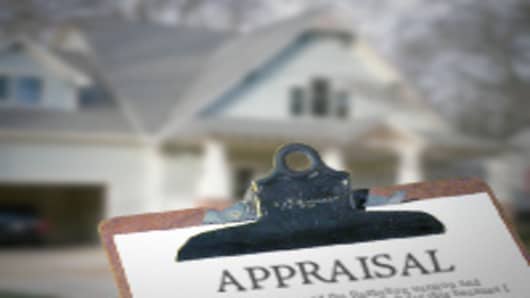And with many experts believing that a real estate rebound is critical for the overall economy to recover, patience with housing is beginning to wear thin.
"We're dealing with a problem that probably took us eight years to get into and expecting to get out of it in eight minutes, and it's just not going to happen," says Rick Sharga, analyst for RealtyTrac, which follows real estate trends. "The frustration might be more self-induced or self-inflicted than necessarily something the real world would create."
Experts cite various reasons for the continuing problems with housing and say it's unrealistic to expect a full recovery anytime soon.
"Economists have all been pretty consistent in that they expect the housing market to bottom out at the end of this year or the beginning of next year," Sharga adds. "It's not going to be a rapid recovery."
Experts break housing's problems into five key areas.
1) Unemployment
Consumers fearful of losing their jobs haven't been spending on much of anything, and housing tops the list.
That's a trend unlikely to change until unemployment turns around. So it's no coincidence that housing and the jobless rate are expected to recover right about the same time.
"Demand ultimately is driven by jobs," says Jay Brinkmann, chief economist with the Mortgage Bankers Association. "If anybody asked what are the top four things (influencing housing), I'd like jobs as one through four."
With the unemployment rate likely to hit as high as 11 percent before the job-shedding carnage is complete, that's bad news for housing.
"The big white elephant in the room is probably unemployment," Sharga adds. "That's a double-barreled effect on the marketplace."
One barrel is the unwillingness to buy; the other is the continued rise in foreclosure rates.
The MBA recently reported that a record-high 3.85 percent of all mortgages are in foreclosure. RealtyTrac said May foreclosures actually dropped 6 percent from the previous month, though they were still 18 percent higher for the same period in 2008 and the third highest on record.
"People who have lost jobs or are concerned about losing their job certainly are not going to commit to long-term major investments like buying a house," Sharga says. "All of the data points are suggesting we're certainly not out of the woods yet."
2) Credit Availability
Despite all the government efforts to inject liquidity into the capital markets, banks are still reluctant to lend.
While those with squeaky-clean credit histories and a lot of cash on hand are in a better position to get loans, the rest of the buyers are getting kicked out of the marketplace.
"If you've got good credit, you've got money to put down and you've got a job, it's actually pretty easy to get a loan," Brinkmann says. "The people who have had problems since the middle part of 2007 are people not in those particular brackets."




